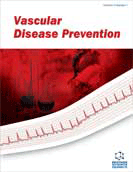Abstract
Recently short-term power spectral analysis of heart rate variability (HRV) has been used also to stratify the risk of sudden death in subjects with chronic heart failure (CHF). Short-term spectral analysis of RR variability in normotensive healthy subjects shows two distinct components of HRV: high-frequency power (HF), which synchronizes with breathing and therefore reflects vagal modulation of the sinus node, and low-frequency power (LF) oscillating around 0.1 Hz influenced also, though not solely, by sympathetic modulation of the sinus node. Among factors that strongly influence autonomic control of the sinus node and HRV are aging, hypertension and CHF. CHF, markedly reduces both spectral components of HRV and the paradoxical LF reduction is a risk factor for sudden death. It is reasonable that, in a next future, LF could become a useful tool to identify more precisely subjects at high risk of sudden death in various cardiovascular conditions.
Keywords: oscillations, cardiomyopathy, ultra-low-frequency (ULF), Coronary artery disease, hypertension
 2
2

